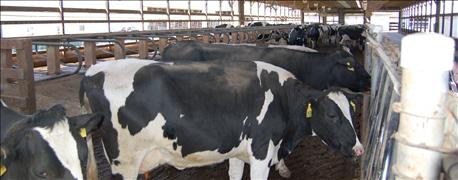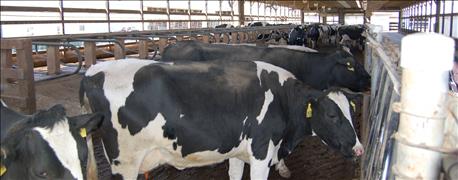
Suppose you raise heifers and sell springers to large dairy operations. Now suppose that after a dairyman agreed to buy a large number of heifers recently, he came back and asked for more time because the lender he typically uses wouldn’t loan the money to buy your animals. He eventually found a lender that would, and bought your heifers. Are you left to assume the large dairy is in tough financial straits?
Not necessarily, says Jason Henderson, director of Purdue University Extension. Henderson has a strong background as an ag economist in the financial field.

2 SIDES TO LOAN STORY: A banker declines to loan money to buy more cattle. Maybe the prospective borrower is already highly leveraged. But maybe there's more to the story.
“There are actually two possible explanations for the first banker’s decision,” he says. “Yes, it’s possible the large dairy already has a lot of debt, and the banker didn’t want to extend more credit to it.
“But it’s equally possible that the lending institution he or she works for is already heavy into agriculture. Perhaps their ag portfolio of loans is a larger percentage of their overall business than they would like.”
What Henderson is inferring is that the decision could have more to do with the financial institution’s overall financial picture and goals rather than the dairy’s financial situation only.
“Agriculture and energy are the two fields in danger of being downgraded right now by those who rate industries as to whether they are good risks or not,” he explains. Low prices for products in both industries are behind the possible downgrades.
The financial institution may be looking at its overall portfolio and deciding it has more money loaned out in agriculture than it likes, Henderson explains. Bankers also have people to answer to, and sometimes they must make decisions based on the financial position of the institution, he concludes.
About the Author(s)
You May Also Like




